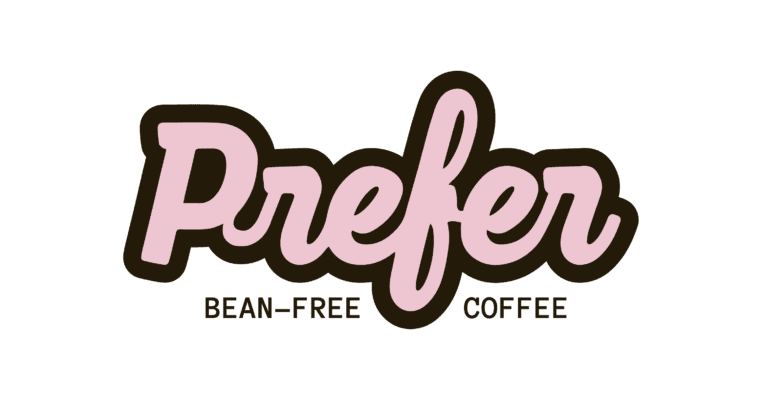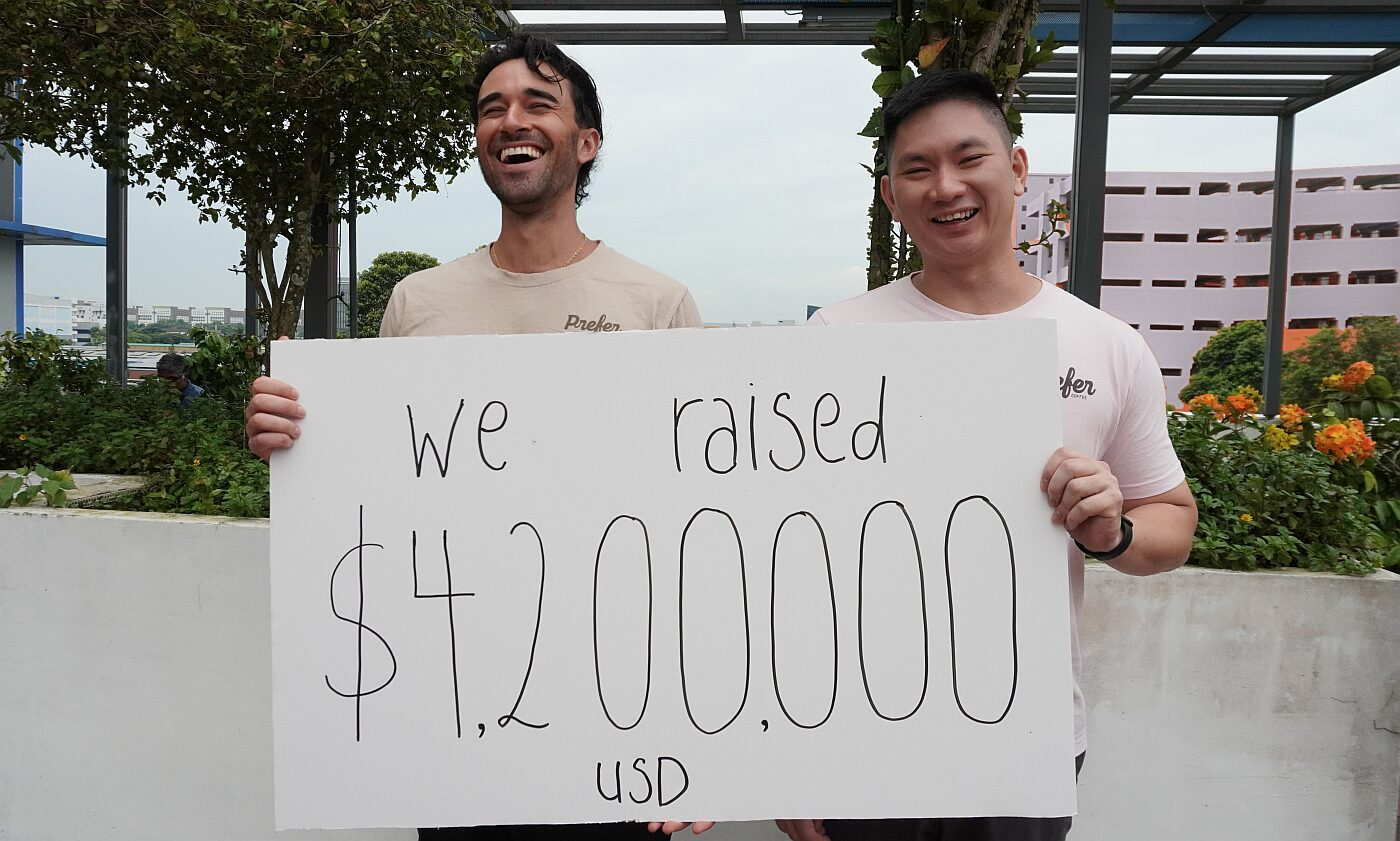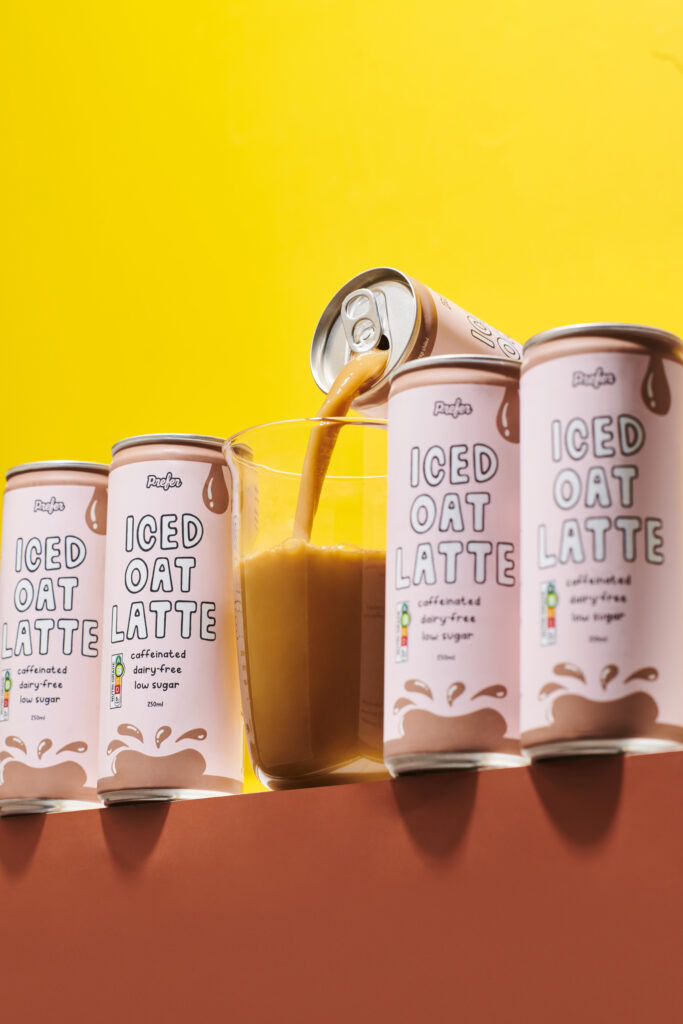
In an era where climate change and supply chain disruptions are reshaping the future of agriculture, coffee sits at the center of crisis. Arabica beans, prized for their delicate flavor and global popularity, are becoming increasingly difficult and expensive to cultivate as rising temperatures, erratic rainfall, and new pests disrupt traditional growing regions. Prices have surged to record highs, harvests fluctuate unpredictably, and smallholder farmers—who produce the majority of the world’s coffee—struggle to stay afloat.
At the same time, sustainability concerns weigh heavily on the industry, from deforestation linked to new plantations to the carbon footprint of transporting beans across continents. Against this backdrop of volatility and uncertainty, a Singapore startup called Prefer is rewriting the rules of coffee—introducing a bean-free alternative that could redefine how the world consumes its favorite beverage.

Founded in 2022 by Jake Berber and Ding Jie Tan, Prefer is a food-tech company building coffee without beans. The startup uses upcycled raw materials—such as soy pulp, surplus bread, and spent grains—and processes them through proprietary microbial fermentation to recreate the aromas and taste profiles of traditional coffee. Instead of cutting down forests or consuming massive amounts of water to grow beans, Prefer transforms food by-products into a familiar yet more sustainable beverage.
The company’s approach doesn’t stop with coffee. Its fermentation platform extends to cocoa, another commodity heavily strained by environmental and labor challenges. By replicating the sensory qualities of coffee and cocoa with alternative feedstocks, Prefer positions itself as a pioneer in the emerging category of sustainable ingredient innovation.

Prefer primarily operates on a B2B model, supplying ingredient solutions to food and beverage manufacturers. Its bean-free powders can be blended with conventional coffee—up to 40%—allowing partners to reduce costs and environmental footprints while maintaining the taste consumers expect. At the same time, the startup has built visibility with its own ready-to-drink products and ground coffee offerings in Singapore, giving consumers a direct taste of its innovation.
Rather than investing in capital-intensive infrastructure, Prefer scales production through toll manufacturing and licensing partnerships. This strategy enables rapid expansion without the burden of building factories, while ensuring its proprietary fermentation technology can be adapted across geographies.

In August 2025, Prefer closed a US$4.2 million pre-Series A round, led by At One Ventures and Chancery Hill Capital, with participation from Forge Ventures. This brings the company’s total funding to US$6.2 million to date. The fresh capital is earmarked for scaling production, expanding R&D into new flavor profiles, and accelerating international expansion.
Strategic partnerships are already playing a central role in Prefer’s growth. In Thailand, the company is collaborating with Ajinomoto to co-develop sustainable beverage applications, while in Australia and New Zealand, licensing agreements with The Coffee Ferm allow local manufacturers to produce and distribute Prefer’s bean-free coffee under its flavor IP. Collectively, these partnerships are supported by more than US$15 million worth of offtake agreements, underscoring demand from major players in the region.

Prefer’s products are not just alternatives—they are designed to outperform traditional coffee on sustainability and cost. A life-cycle assessment indicates up to 85% lower greenhouse gas emissions compared to conventional Arabica. By leveraging food by-products, the company also reduces waste and lessens reliance on vulnerable agricultural supply chains. Equally important is the economic value: soluble bean-free powders can be up to 50% cheaper than Arabica beans, creating a powerful incentive for both businesses and consumers to adopt them.

Prefer’s long-term vision is ambitious. The company plans to scale production to around 500 tonnes annually through its manufacturing partnerships, while broadening its product portfolio into cocoa and beyond. With expansion into Asia-Pacific already underway, Prefer is positioning itself not only as a sustainable coffee company, but as a platform redefining how staple ingredients are made in a climate-constrained world.
As demand for sustainable food alternatives rises, Prefer’s model of combining taste, cost efficiency, and environmental stewardship could set a new benchmark. Its journey raises a bold question for the global food industry: if coffee can be reinvented without beans, what other cornerstones of our diet might follow?
0 Comments